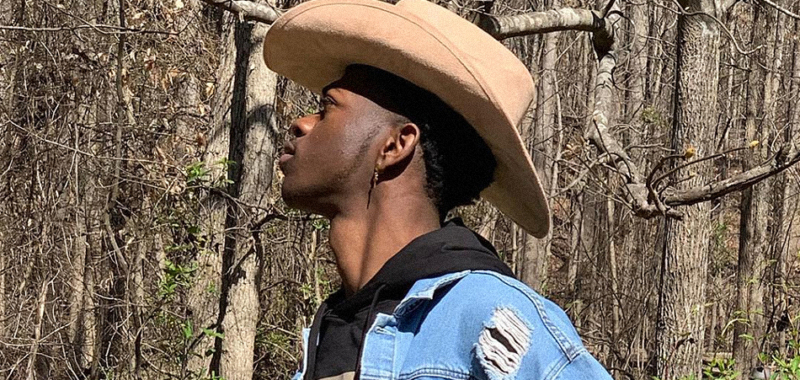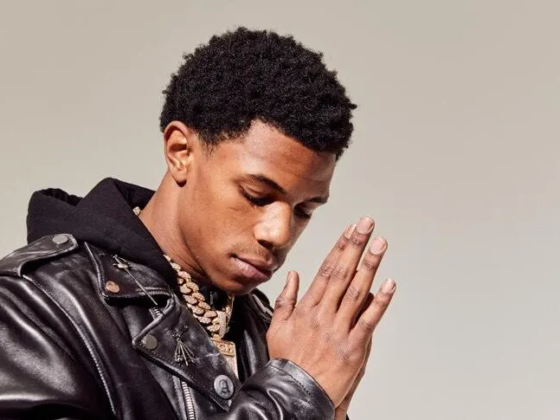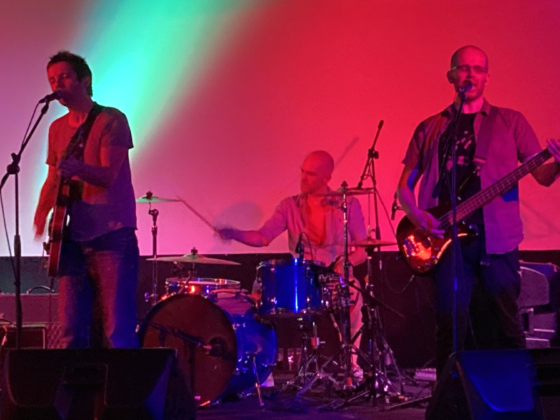While the world burns around us, you can always count on the music industry to take up arms over the most finicky of altercations. One such argument that has taken everyone by storm is the sudden drop of Atlanta rapper Lil Nas X's single "Old Town Road" from the Billboard Country category for not being country enough. Many people were quick to take up arms with arguments ranging from race factors to questioning what even defines a music genre in the modern age. Before we get into any of that, here's a link to the Lil Nas X single at the heart of the argument:
https://www.youtube.com/watch?v=5ho88VXJTBg
Who knew a two-minute track could stir such passionate quarrels across the industry. But if we stop for a second, put the cowboy-centric lyrics to the side and break down the instrumentation, this really isn't a country song. For instrumentation's sake, there is, of course, a playful guitar pluck on the intro but it quickly takes a back seat to the heavy 808 beat that drops 30 seconds in. Once that happens, this becomes a Trap/hip-hop song and this why:
DRAM's 2016 hit single "Broccoli" starts off with a light piano melody before that 808 bass hits about the same place as Lil Nas X's track. Listen to the similarities below (I'm sure you wouldn't put this in the classical music genre).
In a world where the hard lines that once separated music genres have become increasingly blurred, there are still hundreds of songs that were never denied a country categorization that should be considered above "Old Town Road".
In 2004, rapper Nelly teamed up with country music icon Tim McGraw on the track "Over and Over Again," which quickly rose the Billboard charts but was categorized under Pop.
Beyoncé's 2016 track "Daddy Lessons" featuring country legends the Dixie Chicks had reached up t#26 on Billboard's Hot R&B/Hip-Hop list. The song was even performed live at the Country Music Awards but was still denied a country categorization by both Billboard and the Grammy Awards. Give a quick listen to a track that even a globally beloved icon like Beyoncé couldn't get defined as being country.
Now, there was a flood of controversy when Beyoncé was shunned by the Recording Academy when she submitted "Daddy Lessons" into the country category. When listening to a track like that, one could easily make an argument for it. The list for tracks that deserve to be categorized as country before Lil Nas X is limitless. Even Lady Gaga's recent Grammy Award-winning single "Shallows" taken from a movie where she played the role of a country singer was still categorized under folk-pop.
There are many who argue that Lil Nas X should be seen as an opportunity for the future of country music. But why can't we view him as an evolved version of hip-hop instead? Many genres pull influences from each other all the time. But what truly defines a genre, before we move down into the abyss of subgenres, is first analyzing the backbone instrumentation of the actual track. The late legendary EDM Swedish DJ and producer Avicii delivered some spectacular moments of country/folk influences with his 2013 dance singles "Wake Me Up" and "Hey Brother". Give it a quick listen below:
Though "Hey Brother" received a splash of airplay in country radio stations across the US, the song was officially categorized under Billboard's "Dance" list, where it climbed all the way up to #7 on the charts. So, why was this a dance track and not just considered the "future of country music" as many have argued in favor of Lil Nas X? At the heart of songs like "Hey Brother" and "Wake Me Up" there is still a dance structure that holds an EDM build with a heavy bass drop and a steady BPM. If we take the time to re-listen to Lil Nas X's "Old Town Road" there is a subtle campfire guitar melody but the true backbone of the song is still its dominating Trap 808 beat.
Looking at the content and themes found in the lyrics of tracks is an unreliable method for distinguishing a genre. Talking about poppin' bottles doesn't make a song hip-hop and would similarly be as ignorant as thinking lyrics about riding a horse makes something country. The songwriting in Lil Nas X's track is a celebration of cowboy life but if talking about being country makes you a country artist, then the Nappy Roots may have been one of the greatest country groups to ever live.
So are privileged artists like Taylor Swift only allowed to declare when their music can and cannot be considered country? Back in 2014, the rising country superstar decided that her 1989 album was to be an official pop album and away from country music. What can even make a bold claim like that true? One way we can actually decide on that is by analyzing the subtle differences that separate Darius Rucker's newfound solo country music from his 90's alt-rock work with Hootie and The Blowfish.
Give a quick listen to Hootie's 1994 track "Let Her Cry":
Now, here's Darius Rucker's 2017 single "For The First Time".
There's not much of a difference there. His voice has a more accentuated southern draw to it but like we mentioned earlier, a southern accent is hardly enough to define the genre. The backbone of Darius' new country sound is determined by the dominating string guitar play that's intertwined with that classic country steel guitar and fiddle play. These strong instrumentals share the front stage with the vocals and by doing so, we can more easily categorize this under country. As the classic 70's country band Alabama famously sang" If you're gonna play in Texas, you gotta have a fiddle in the band". Having a guitar pluck in the intro and then have it fade into the backdrop of the Lil Nas X track isn't enough to consider the song as a whole country.
Country music is, in fact, evolving though. It's a reach (and ultimately dangerous) to say it should be evolving to allow for a Trap sub-genre and include hip-hop artists like Lil Nas X. That's a pandora's box you really don't want to keep open. But thanks to modern young acts like Kane Brown country music has still come a long way from the old folk sounds of Conway Twitty.
At the end of the day, there's really nothing wrong with having an artist like Lil Nas X creating hip-hop music with strong country influences. We should be celebrating artists like him that are challenging the exhausted face-tatted SoundCloud "lil" Riff Raff impersonators that have actually hindered and pidgeon-holed many new hip-hop acts trying to break into the scene. But maybe this whole Lil Nas X ordeal has been a brilliant ploy and a unique opportunity for him to separate from the rest of the "lil" rap scene. Tip of the hat if that's true.
If anything, Lil Nas X is helping break the modern hip-hop mold by drawing influences from folk music and letting people know you can sport that backcountry Cowboy swagger but still drop crowd-pleasing Trap bangers.









